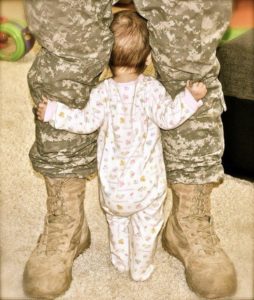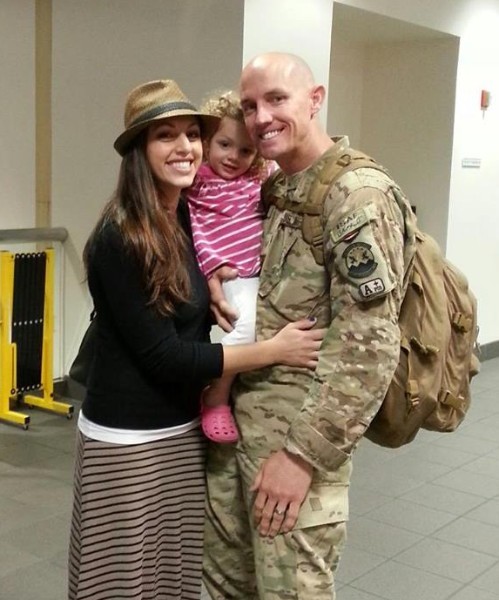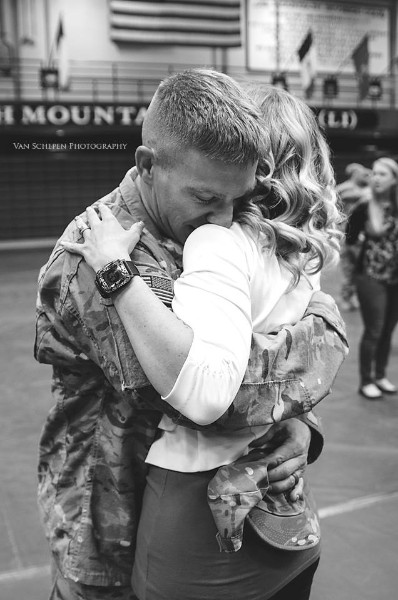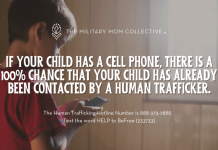There are things in life to look forward to with eager anticipation; a deployment is not one of them.

For us, the dreaded deployment is underway and with each new document, training or additional uniform, there’s greater awareness that the date is looming.
This post takes a holistic approach for spouses of service members with an upcoming deployment. I’ve combined logistical and relational observations from a diverse group of military spouses. I hope you find it helpful!
Logistical Matters:
Power of Attorney (POA):
A POA is essentially a legal document providing written authorization to represent or act on an individual’s behalf in his or her absence. This will likely benefit the military spouse most in areas of financial matters or medical decisions, although he or she is not limited to these areas. Keep in mind with POA’s, you may need a variety to cover multiple layers of financial and logistical matters.
Base legal is your go-to resource. Here are a few specific examples of what you may need a POA for:
- Buying or selling – home, vehicle, etc.
- Lease agreements
- Medical decisions/dental work
- Childcare decisions
- Filing Taxes
- Bank transactions
- Emergency Financial Assistance
- Passports
- DEERS (Defense Enrollment Eligibility Reporting System) dealings, for example- Military ID card renewal, medical benefit enrollments
Will and Testament:
A will is encouraged for both spouses, although required for the deploying service member. A will is essentially a legal document by which a person/s express their wishes as to how their property and goods are distributed in the unfortunate event of death (not always a fun topic but necessary).
Letter of Intent:
Formulating a letter of intent allows documented, mutually agreed upon desires for your child/children regarding support and advocacy care in the event you are no longer present to do so.
Financial Planning:
This is not traditional financial planning, as in planning for retirement, but planning for management of finances during deployment.
I’ve heard some great recommendations on this topic but my favorite is a ‘buddy binder.’
As a child, I recall frenzied chaos when it was time to pay bills. Parental units scurried around feverishly to find that one bill that needed to be paid RIGHT NOW. Every month…
Perhaps that could have been curbed by my one of my truest companions- organization. One spouse mentioned her husband managed all financial matters. Prior to deployment, he created a binder that held the POA’s, will, and financial details that would be needed, things like:
- Payment due date (consider automatic payments prior to departure if budget allows)
- Contact numbers, account numbers, passwords and websites for all bill collectors/creditors
- Birth Certificates, Social Security Cards, Passports, etc.
- POA’s, Will, Letter of Intent
- Up-to-date Life Insurance documents
This ‘buddy binder’ allowed a sense of calm for the staying spouse to come alongside in support of his or her kids through the deployment without the distraction of financial technicalities; the resource was prepared ahead of time with all-inclusive content should the need arise.
Pre-Deployment Checklist:
The Active Duty Member will receive an out-processing checklist. I recommend glancing through it to glean any additional information (if for no other reason other than to emotionally prepare for the”this is getting real” moment). This may not be the case for everyone, but I like to know specific details as soon and as often as possible.
Military & Family Readiness provides familial support and resources including but not limited to:
- Hearts Apart Program
- Give Parents a Break Program
- Car Care Because We Care
- Pre-Deployment Child Care
- Deployment Child Care
- Military & Family Life Counselors
- Pre-Deployment care packages for kids
Some programs above are specific to Lackland AFB as it’s where we’re currently stationed, but it doesn’t take long to do a quick Google search to determine what resources are available in your local area. When all else fails, contact your Military & Family Readiness Center, it is an essential part of their mission to link service members and families to the right resources to meet specific needs. They offer training, workshops, one-on-one consultations to equip and encourage leadership. They aim to strengthen communities, provide self-sufficiency and enhance mission readiness and resiliency in adapting to the military lifestyle.

Honorable mentions:
- Grocery pickup or delivery.
- Attend a deployment briefing. Spouses are welcome to attend, it may better prepare you for what’s to come. If you cannot/prefer not to attend, consider scheduling a meeting as a family with Military & Family Readiness for all available resources. Typically these services are offered to all branches of service. In locations where that is not the case, each branch of service should have a comparable resource.
- Know who your Key Spouse is and don’t be afraid to reach out.
- The staying spouse can have personal access to DFAC (Defense Finance & Accounting Center) & My Pay Account (set these up prior to departure).
- Military OneSource is a great resource and includes Military Family Life Counselors
- Base Chaplains
Relational Matters:
Logistics are really important to set you up for success, but how you personally handle the transition can make or break you. Bear in mind, not everything said below will resonate and that’s OK. Do what works best for you and your family.
Goals!
Many families recommended personal, couple, or family goals. Goals like saving money, hiring a personal trainer, paying off debt. Goals can keep your thoughts in a healthy place rather than wondering the five W’s- who, what, when, where, and why. If you obsess over where they are, what they are doing, who they are with, etc. it will always lead to worry. Your spouse will be gone for an extended period of time. This is the time to take that class you’ve always dreamed about. I recently took up ballet, I am sub-par and loving it! Set goals.
Save!
Save for a getaway, for a fun activity, for new clothes. Saving in general is a good idea. The deployed spouse will have additional pay during deployment; save for the rainy days, spend some on the stormy ones. Remember to allow for stormy days, as you and your children navigate this new normal.
Hopes!
Robert Ludlum said, “Hope is the only thing stronger than fear.” Seek opportunities to instill hope. Have something to look forward to. My husband was TDY near Valentine’s Day. We created a Valentine’s box for daddy. We added love notes, drawings, candy etc.
Even small engaging activities can give your kids something to look forward to.
Other fun ideas:
Honor Wall:
Find ways to honor the deployed.
A dear friend displayed a wall of honor for daddy. On that wall was a clock in both time zones, a favorite photo of him, pictures they drew for him. They even had a certain time of day they prayed for him.
Consider a white board to write, “Things we want to remember to tell mommy or daddy.” This can help kids recall their day and make conversations intentional & more fulfilling.
These are my personal favorites from feedback from other military spouses:
- Consider reading books together as a couple and discuss from afar.
- Play games together over Skype, roll for the deployed spouse (nothing too complex).
- Marco Polo App (I personally LOVE this app for multiple reasons. It allows adult interaction in the evenings over a glass of wine without ever leaving home. It also allows for intermittent chats when it works best for each individual.)
- DON’T TAKE THINGS TOO PERSONAL. Your spouse is not choosing to leave you. This is quite literally part of their job. It’s hard on you. It’s hard on them. It’s hard on the kids. Try not to take offense. Sometimes conversations will be cut short, it’s just the reality of the situation. It’s NOT you. It has nothing to do with their love for you. Enjoy the moments you talk, try not to be broken about times you cannot. Don’t guilt each other or shift blame. Deployments are hard on everyone.
- Try to keep a routine. We have Friday fun days in our house. A friend of mine has Thursday chill days. Do whatever works best for your family; routine can help with those feelings of uncertainty in a child’s life.
- Everyone processes differently. When the deployed spouse returns and depending on what they’ve seen, the hardest part of a deployment can sometimes be reintegration (for all involved). Some individuals may not be able to express themselves. Know what signs to look for regarding PTSD.
- Plan for the reunion. Have conversations on what will work best as a family. Some couples opted for an overnight at a hotel prior to reintegration (unbeknownst to their kids). At times, the staying spouse can feel slighted when extended family is present upon the spouse’s return. Learn what works best for your family, adapt where needed.
- Don’t be afraid to take a break, ask for help, or ask for company. There is no shame in needing other people.
- Objects that remind us: Daddy dolls, mommy/daddy t-shirts made into pillow cases or blankets, etc.

This is a lot of information, and I know I’ve missed other great ideas.
Please comment below, and help expand our breadth and depth of knowledge for all military spouses dealing with deployments.
I’ll leave you with this:
Recently, a young widow told me that any blessings she received from other people obviously wouldn’t bring her husband back, but anything that helped lighten the burden and heartbreak for her children was deeply appreciated.
While our spouses are (God-willing) coming home, we can collectively lighten one another’s load. What have you done to help lighten a load? What has been done for you?










